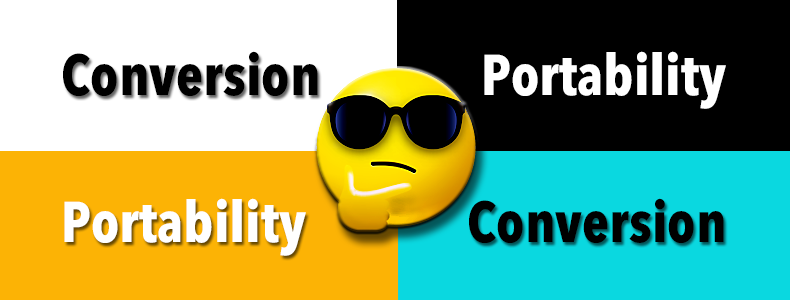If you’re looking into life insurance or already have a policy, you probably know that life insurance isn’t simply black and white. There are many types of life insurance with different elements, and it’s important to understand them before purchasing or enrolling in a policy. One difference that’s important to understand is the difference between life insurance conversion and portability.
Policies that are convertible or portable are often from group term life insurance policies, which are usually offered through an employer. “Group life insurance policies are generally written as term insurance offered as a group benefit to employees who meet eligibility requirements, such as being a permanent employee or 30 days after hire,” according to Investopedia.1
Is My Coverage Convertible or Portable?
If you have group term life insurance through work and decide to leave your place of employment, you may or may not have the option to keep your coverage in some form. If you do have the option to keep coverage, which means it is convertible – and you may convert it to a whole life policy – or it is portable – and you can take the coverage with you. (It’s important to note that some individual, or non-group term, policies have a conversion right as well.)
Convertible Policies vs. Portable Policies
To convert your life insurance policy essentially means that you’re changing the group or term life insurance policy that your company has offered into a whole life insurance policy, like whole life insurance; however, what you can convert your policy to varies by state. For example, some states will only allow you to or require you to convert the term policy to a universal life policy.
On the other hand, a portable life insurance policy is one that is, as the name suggests, portable. That is to say, portable life insurance policies can come with the insured even after the insured leaves their place of employment. Typically speaking, the only type of life insurance policies that can be made portable are term life insurance policies.
Essentially, life insurance policies that are convertible can be converted from term coverage to whole coverage. Portable policies allow you to take coverage with you, even if you leave the place of employment where you initially enrolled in a group term policy.
Pros and Cons
There are advantages and disadvantages to portable and convertible policies. For example, if you decide to make your policy portable, the premiums may be less expensive than if you decided to convert it. In other words, if you decide to convert your policy to a whole life insurance policy, the premiums may be more expensive. However, with portable policies the premium may fluctuate, whereas convertible policies maintain the same premium over time.
Talk to the Experts
If you have questions about convertible or portable policies, speak to a licensed insurance agent. If you have a policy in place and want to know about its conversion or portability privilege, contact a licensed insurance agent from the insurance company that issued the policy or speak to your benefits administrator.
- Investopedia, Group Term Life Insurance, 2019
Categories: Insurance, Group Life

